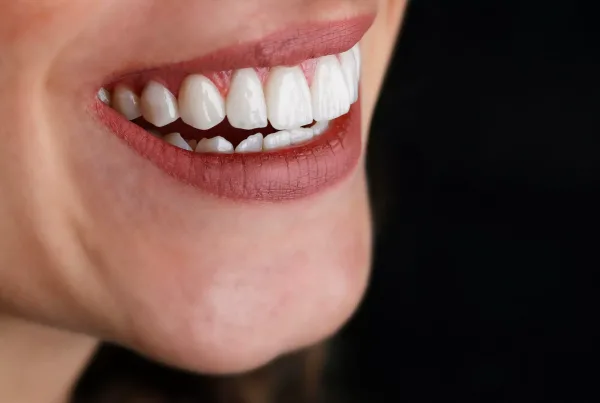
Tooth sensitivity is a condition characterized by discomfort when exposed to hot, cold, sweet, or sour foods. This condition can stem from various reasons and adversely affect quality of life. This article will discuss treatment methods you can apply at home when you experience tooth sensitivity.
What Can Cause Tooth Sensitivity?
Tooth sensitivity can result from various factors, often stemming from the thinning of the enamel layer or receding gums. The main factors that can cause tooth sensitivity include:
- Thinning of Tooth Enamel: Thinning enamel can lead to tooth sensitivity.
- Gum Recession: Gum recession exposes the root surfaces of teeth, which can increase sensitivity.
- Tooth Decay: Tooth decay can damage the enamel and cause sensitivity in the inner part of the tooth.
- Teeth Grinding (Bruxism): Grinding or clenching teeth can lead to wear and sensitivity.
- Teeth Whitening Procedures: Excessive teeth whitening procedures can thin the enamel and increase sensitivity.
- Acidic Foods and Beverages: Acidic foods and drinks like lemon juice, orange juice, and carbonated beverages can weaken enamel and increase sensitivity.
- Incorrect Brushing Technique: Overly aggressive brushing or improper technique can damage enamel and cause sensitivity.
- Malocclusion: Misalignment of teeth can lead to excessive pressure and, thus, sensitivity.
- Excessive Use of Abrasive Toothpaste: Toothpaste with high abrasiveness can damage enamel and increase sensitivity.
When these factors combine, tooth sensitivity can arise. Individuals experiencing tooth sensitivity should consider these factors and take appropriate measures and treatments to address the issue.
How Can I Quickly Stop Tooth Sensitivity at Home?
Tooth sensitivity is a condition that can negatively impact daily life, but with some home remedies, you can quickly alleviate this sensitivity. Here are some methods to help you promptly stop tooth sensitivity at home:
- Use Toothpaste for Sensitive Teeth: Toothpaste formulated for sensitive teeth can help strengthen enamel and reduce sensitivity. Opt for toothpaste containing potassium nitrate or strontium chloride.
- Use a Soft Toothbrush: Brush your teeth gently with a toothbrush that has soft bristles. Overly aggressive brushing can damage enamel and increase sensitivity.
- Improve Brushing Technique: To clean your teeth effectively, use the correct brushing technique. Brush with gentle circular motions to avoid damaging gums and enamel.
- Maintain Oral Hygiene: Use dental floss regularly and pay attention to oral hygiene. Cleaning between teeth removes debris and plaque, reducing sensitivity.
- Avoid Acidic and Sugary Foods: Acidic and sugary foods weaken enamel and increase sensitivity. Limit or avoid their consumption.
- Rinse Your Mouth: Rinse your mouth with water, especially after consuming acidic or sugary foods. This helps clean teeth and may reduce sensitivity.
Untreated tooth sensitivity can progress into a more severe condition. Therefore, taking simple steps at home is essential to reduce sensitivity. Consult a dentist if tooth sensitivity becomes a persistent issue or if other ineffective treatment methods are. A dentist can identify the underlying cause of sensitivity and recommend appropriate treatment.
Recommendations for Toothbrushes and Toothpaste for Tooth Sensitivity
Choosing the right toothbrush and toothpaste is crucial for individuals experiencing tooth sensitivity. Specialized products formulated for sensitive teeth can strengthen enamel and reduce sensitivity, providing a more comfortable teeth-cleaning experience.
Toothbrush
Individuals with tooth sensitivity should opt for a toothbrush with soft bristles. Soft bristles help clean teeth gently without damaging enamel or irritating gums.
Electric toothbrushes can provide more effective cleaning and often come with suitable attachments for sensitive teeth. Vibrating or rotating brush heads can help clean teeth more thoroughly. An ergonomic handle and comfortable grip make brushing more comfortable.
Toothpaste
Choose toothpaste formulated explicitly for tooth sensitivity. These toothpastes often contain ingredients that help strengthen enamel and reduce sensitivity.
Look for toothpaste containing potassium nitrate or strontium chloride, which can help alleviate sensitivity and protect enamel. It’s also beneficial for sensitive toothpaste to contain fluoride, as this mineral strengthens teeth and prevents decay.
Depending on personal preferences, toothpaste comes in various flavors and formulations. However, individuals with allergies or sensitivities to certain flavors should be cautious.
Professional Treatment Methods for Tooth Sensitivity
When home remedies fail to control tooth sensitivity or when sensitivity is severe, consulting a dentist for professional treatment methods is advisable. Here are some professional treatment methods for tooth sensitivity:
- Fluoride Application: Dentists can apply fluoride to strengthen enamel and reduce sensitivity. Fluoride remineralizes enamel, helping to alleviate sensitivity.
- Dental Bonding: Dentists can apply a protective coating to the surface of sensitive teeth. This coating helps reduce sensitivity and protects teeth from external factors.
- Oral Hygiene Education: Learn proper brushing techniques, flossing, and oral hygiene practices from your dentist. This can help reduce sensitivity and maintain overall oral health.
- Root Canal Treatment: If tooth sensitivity is severe and there are issues with the tooth’s root, root canal treatment may be necessary. During this procedure, the inside of the tooth is cleaned, and a filling is applied to alleviate sensitivity.
- Gum Treatment: Gum disease or gum recession can cause tooth sensitivity. Dentists can perform gum treatments to improve gum health and reduce sensitivity.
- Dental Prosthetics: In cases of tooth decay or tooth loss that leads to sensitivity, dentists can restore teeth’ functionality and appearance with prosthetic treatments.
- Bruxism Treatment: Habits like teeth grinding or clenching can cause tooth sensitivity. Dentists may recommend treatments such as night guards or mouthpieces to address these issues.
Professional treatment methods effectively reduce tooth sensitivity and maintain overall oral health. Consult a dentist to determine the most appropriate treatment method. While symptoms may appear similar in some cases, individual health history and overall health may require a different treatment plan.





